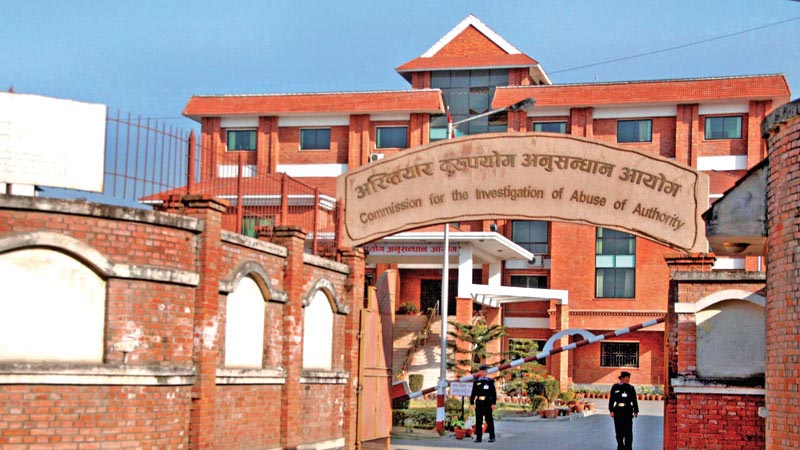CIAA empowers CDOs to receive graft complaints
Kathmandu, December 19
The Commission for the Investigation of Abuse of Authority has delegated some of its powers to 33 chief district officers of all seven provinces to receive complaints relating to financial irregularities and corruption, and carry out preliminary investigation.
The delegation of powers came into effect with a notification published in the Nepal Gazette earlier this week. According to the anti-graft body, it delegated the powers to the DAOs under Sub-Article (5) of Article 239 of the constitution, which states that the CIAA may cause the DAOs to receive complaints and conduct preliminary investigation regarding alleged irregularities and corruption in the federal, provincial and local level based public offices under their working areas.
DAOs of Taplejung, Panchthar, Sankhuwasabha, Bhojpur, Solukhumbu, Okhaldhunga and Khotang in Province 1 have been assigned to exercise the powers delegated by the CIAA. Similarly, DAOs of Rasuwa, Dolakha and Ramechhap will look into the corruption cases in Province 3.
DAOs in Gorkha, Lamjung, Manang and Mustang have been assigned for Gandaki Province; Gulmi, Arghakhanchi, Rolpa, Pyuthan and Eastern Rukum for Province 5; Humla, Jumla, Mugu, Kalikot, Dolpa, Jajarkot, Western Rukum and Salyan for Karnali Province; and Darchula, Bajura, Bajhang, Achham, Doti and Baitadi for Far-western Province.
According to the notification published in the Nepal Gazette, the concerned DAOs shall abide by the provisions stipulated in the Prevention of Corruption Act, CIAA Act and Rules, prevailing laws and procedures set by the anti-graft body for the purpose of exercising the powers delegated to them. “The concerned DAOs shall register the complaints related to corruption in public offices and carry out initial investigation into them before forwarding the cases to the CIAA within three months for detailed investigation,” the notification states. The DAOs will also be required to maintain coordination and collaboration with the concerned provincial offices of the CIAA.
However, the DAOs are not allowed to conduct sting operation to catch corrupt officials red-handed with bribe. “If the DAOs have a reliable information that a government official is preparing to receive bribe from service-seekers, they shall communicate to the provincial office or central office of the CIAA for sting operation,” it states. The DAOs may also quiz the corruption suspects.
The DAOs will have to submit a monthly report to the CIAA, mentioning the details of acts and actions carried out by them in relation to implementation of the powers delegated to them.






